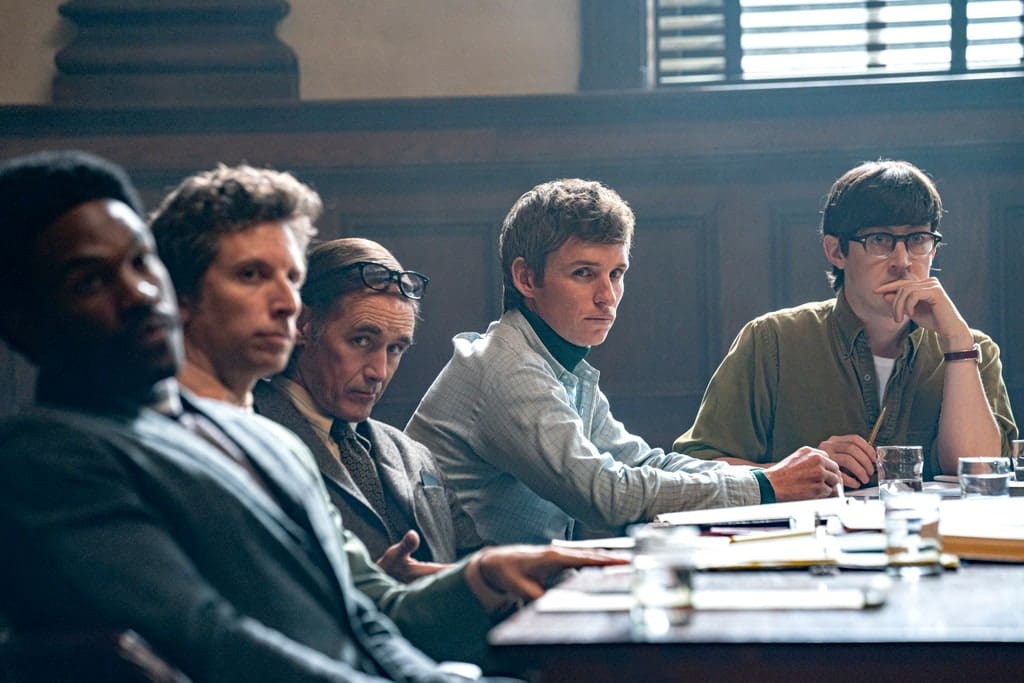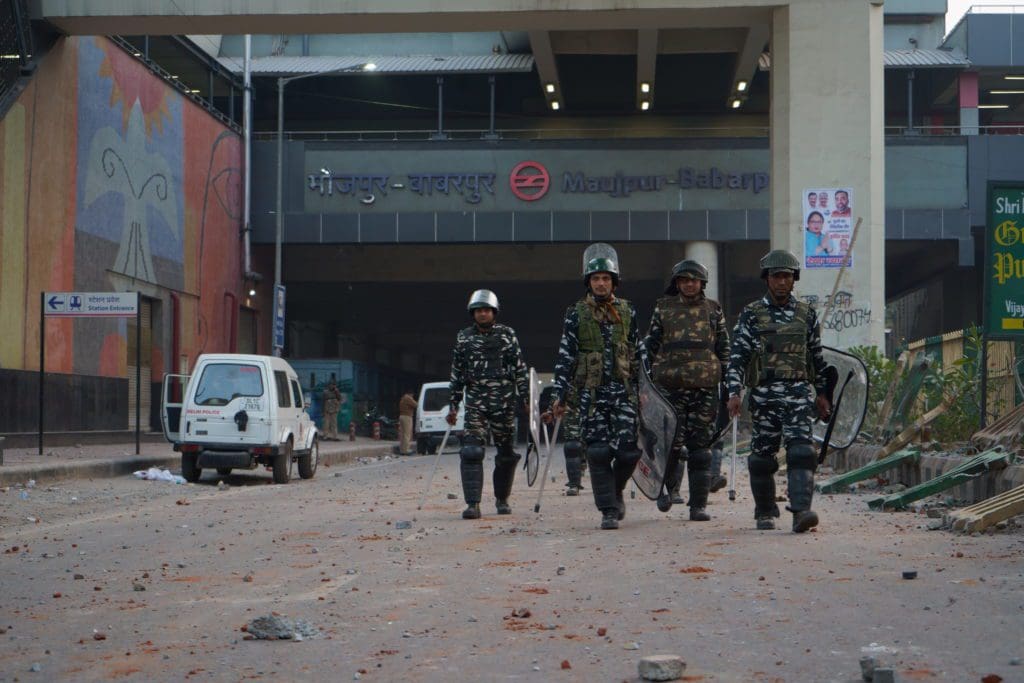
Sorkin’s courtroom drama is set in the sixties, admittedly, idealistic, yet, laced with the realities of unfettered corruption of the system, propaganda threatening democracy and infliction of suffering in the form of injustice by the establishment.
The Netflix original film is based on the “political” trial of eight activists who were indicted for the conspiracy to cross the state lines to incite riots. The anti-Vietnam war demonstrations took place in Chicago in 1968 at the National Democratic Convention.
In the beginning of the trial, the prosecutor, Richard Schultz (played by Joseph Gordon-Levitt), in his initial statement referred to the eight defendants as, “The radical left in different costumes…” who later came to be known as the “New left”, a very convenient way to totally disregard the collective cause of the individuals only to make a mockery out of their very different political persuasions.
These leaders and founders of different organisations were well-read intellectuals and not “rebels without a job”, they fully understood what it meant to have thousands of agitated civilians follow them across the state.
The “ideas” that Abbie (played by Sacha Baron Cohen) believed they were ‘guilty’ of carrying across the state lines, are not alien to any of us, we all woefully resonate with these ideas of dissent, the criticality of standing up against injustice and well, being the ‘serious people’ of this generation that Tom Hayden (played by Eddie Redmayne) would’ve wanted us to be.
Looking at the trial progress, as an Indian viewer, the entire idea of a politically motivated and vindictive judge along with the administration who’d already deemed these eight people “petulant and dangerous”, was determined to be on the same wavelength as the political unrest pertaining to India.
When Abbie Hoffman is put on stand by the prosecutor and asked if he, then, had contempt for the government, he replied, “Its nothing compared to the contempt my government has for me”. The establishment made for the people, the institutions which run to serve the people, when driven by the authoritarian force, on an engine which is fuelled by misinformation and propaganda, some pedestrians are bound to get hurt. And often, the very same institutions tend to forget their very duty is to protect the people, in India, it’s the minorities, the marginalised and the dissenters who become the target for the ruling party’s witch hunt against its detractors.
“Police don’t start the riots”– John Mitchell, The Attorney General (played by John Damon)
For legal reasons, we must choose to believe this. And say, that we do believe that the police don’t initiate riots, but is it also untrue that the same police, the sole body for maintaining ‘law and order’, chooses their batons to enforce the supposed law? The Netflix film had horrible, graphic and sadly, very real depiction of what it is like to be caught in an open fire between the police and the protestors, who, for what its worth, were protesting peacefully. The tear gas, the batons and other “defensive” weapons that the police choose to use as guard against the unarmed dissenters is something many can trace back to the very real, very recent protests that took place in India against the CAA-NRC-NPR, the Black Lives Matter Movement in America, just to name a few.
“We’re not going to jail because of what we did; we’re going to jail because of who we are.”
This is one of the many stirring statements made by the defendants. Again, any Indian viewer who’s caught up with the on-going threat to democracy and fundamental rights and has certain “ideas” can recount the tales of the consecutive arrests of alleged conspirators of the Delhi riots, CAA-NRC protestors from Shaheen Bagh, who are mostly students being punished for raising their voice, and finally, intellectuals and professors from the Bhima-Koregaon case, all awaiting justice.


Sorkin, however, a critique of the inherently oppressive institutions, has still kept his hope and idealism alive. It can be seen when one of the most rebellious defendant Abbie says, “I think the institutions of our democracy are wonderful things that right now are populated by some terrible people.”
The ‘conspiracy’ for which these youth leaders were booked is not an occurrence, limited to the United States alone, it is an equally grim reality that we, in India, live in. Even after four decades, we’re still on the streets, fighting a different fight. The opposition is still the oppressive establishment, the institutions infiltrated with vile and vindictive office-holders.
The demonstrations in Chicago then, pulsated with the slogans about saving the American Youth, “The whole world is watching”, they screamed. Sorkin’s Trial of Chicago 7, is a face-off between the establishment and its critics, it is as real as it can get.
With every protest, every demonstration, and every move of dissent, we are one step closer to bringing the change, and as idealistic as it sounds, it is the only hope that can keep any soon-to-be revolution going.
It is not going to be too long before everyone knows that what they call seditious and anti-national, is actually as patriotic as it can get.
Because, after all, the whole world is goddamn watching!
Sania Javed is a student of Economics and a freelance writer based in New Delhi.



